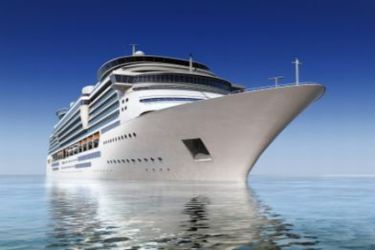Helping You Recover Compensation for Your Injuries and Anguish After an Accident That Wasn’t Your Fault
Taking on a cruise ship accident case is a specialized endeavor that demands a nuanced understanding of maritime law, setting it apart from conventional injury cases. Unlike typically Virginia personal injury lawyers, maritime lawyers possess a unique skill set tailored to the complexities of maritime regulations, jurisdictional issues, and international treaties that govern incidents at sea.
Not just any lawyer can effectively navigate the intricate web of legalities surrounding cruise ship accidents, as it requires a deep comprehension of the specific statutes and principles inherent in federal maritime law. From jurisdictional challenges to the application of international maritime conventions, a lawyer well-versed in this domain is essential for ensuring a comprehensive and effective approach to seeking justice and compensation for victims of cruise ship accidents.
Virginia Maritime Lawyer Richard Serpe

Best Lawyers® (2005 – Present); Norfolk Personal Injury Lawyer of the Year by Best Lawyers (2020); Virginia Super Lawyer: (2006 – Present); Avvo.com : Rated 10/10 – “Superb,” Martindale-Hubbell Law Directory: AV Preeminent rating (highest given).
The “Fine Print” on Your Cruise Ship Ticket
When you’re injured on cruise ships, typical laws and liability rules do not always apply. The ticket and accompanying documents are treated as a contract between the traveler and the cruise company. Cruise lines are notorious for barring a laundry list of lawsuits in their contracts. For instance, some have limits to how much they will pay when sued in incidents resulting in death or personal injury. Some offer no recovery for mental anguish or psychological damages.
Many cruise lines prevent class-action suits from being brought against them, meaning that one or more plaintiffs cannot sue on behalf of a larger group. They also dictate where litigation must be brought, and under what laws. The ship’s nation of registration determines which laws apply. While you might expect large companies like Carnival and Royal Caribbean to register in the United States, most of their vessels are in fact based out of island nations.
Cruise Ship Injuries and Accidents
When crewmembers on board a cruise ship are negligent, the results can be tragic. It’s not just the crew who is responsible for passenger safety, though. The cruise line, the equipment manufacturer, and even fellow passengers can be held liable for accidents at sea. Some of the most common types of cruise ship accidents are caused by:
- Failure to properly maintain equipment
- Defective equipment designs
- Failure to train staff
- Unsafe conditions, like slippery decks and unsecured handrails
- Lack of security
- Insufficient safety equipment
- Navigational mistakes leading to crashes and capsizing
A Shorter Statute of Limitations (Legal Deadlines)
In many cases, cruise lines also include restrictions for the timeframe in which a passenger can pursue legal action against them. By shortening this time period, cruise lines limit the chances that a person will indeed file a lawsuit. Sometimes, this window is a mere six months. This leaves very limited time for a plaintiff and their lawyer to conduct their investigation and gather evidence. Anyone hoping to file suit against a cruise line should act sooner rather than later.
Virginia Cruise Ship Accident Lawyer
If you reside in Virginia and were injured in a cruise ship accident, contact Richard Serpe to discuss your situation during a free consultation. Backed by an extensive knowledge of maritime laws and nearly four decades of experience in assisting injured victims nationwide, our legal team possesses the proficiency and know-how required to advocate for the compensation you deserve. Your case deserves the attention of a seasoned professional, and Richard Serpe is committed to leveraging his expertise to ensure that your rights and interests are vigorously protected.
Helping victims of cruise ships accidents: Carnival Cruise Line, Royal Caribbean, Norwegian Cruise Line, Princess Cruises, Disney Cruise Line, Holland America, Celebrity Cruises, MSC Cruises, Viking Ocean Cruises, and more.


























